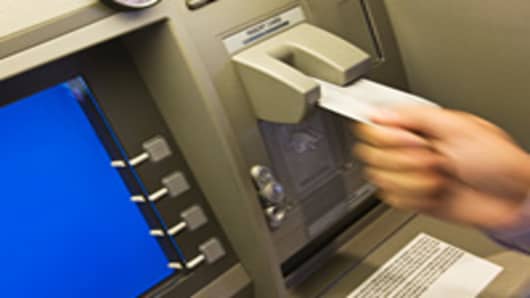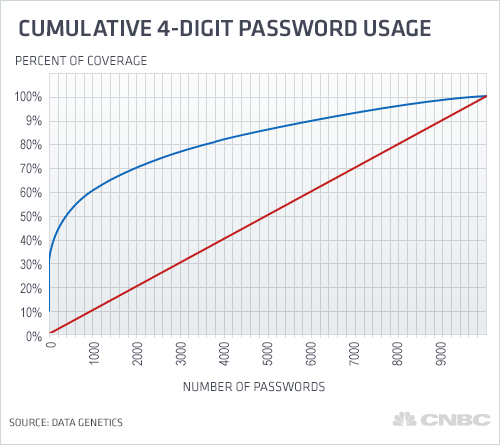When it comes to computer security, randomness is our friend.
Our system of four-digit personal identification numbers, or PINs, is designed to use the 10,000 different four-digit codes available on a 0-9 keypad to make it close to impossible for thieves to guess what we’ve chosen.
Too bad, data mining consultant Nick Berry points out, people exhibit “a staggering lack of imagination in selecting codes” protecting their most sensitive financial information.
In a recent post on his company’s blog, Berry, president of Data Genetics, presented evidence that 1234, the most commonly used PIN, is chosen nearly 11 percent of the time. The rest of the 20 top PIN choices were equally predictable, running from 0000 at No. 2 through 6969 (No. 10) to 1010 at No. 20.




